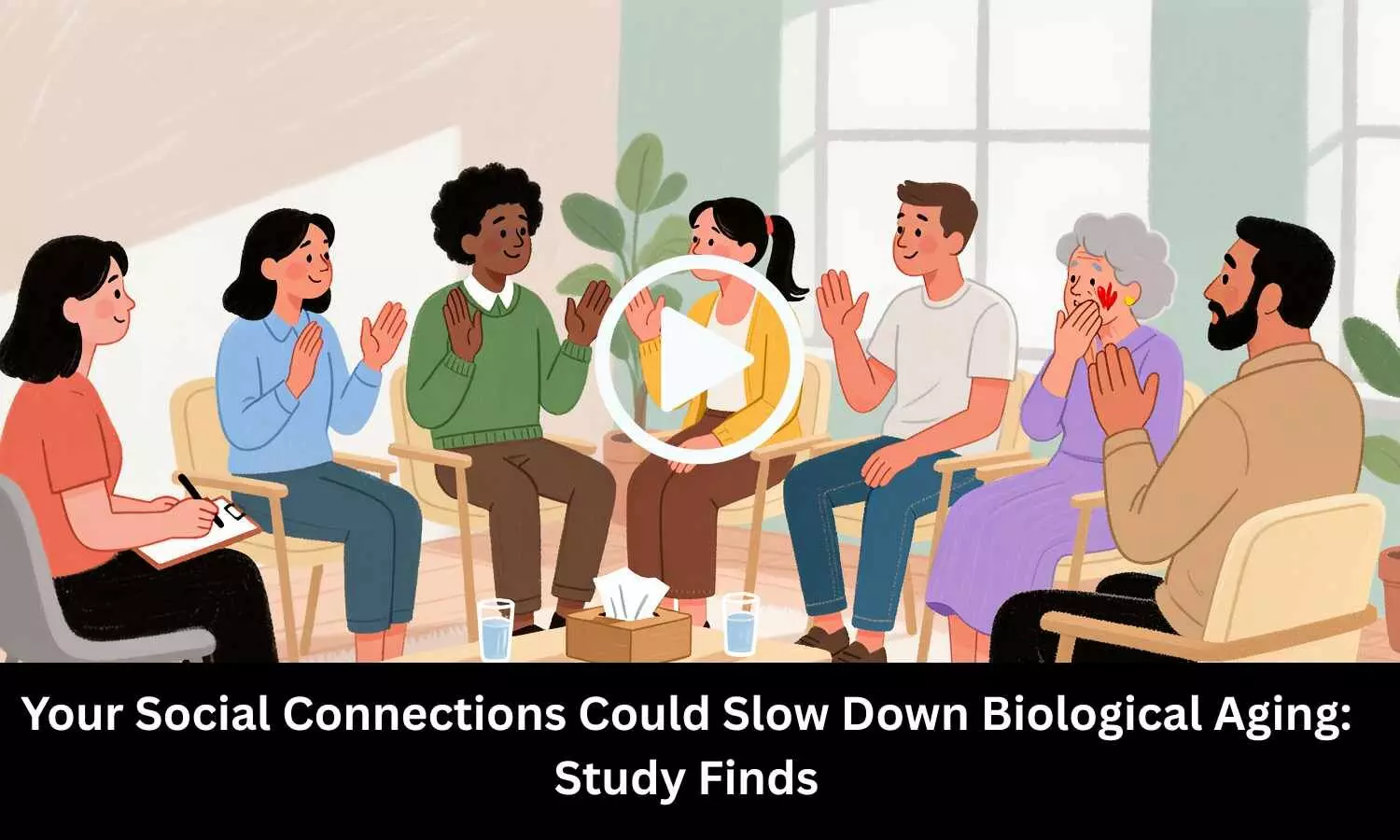Your Social Connections Could Slow Down Biological Aging: Study Suggests
- byDoctor News Daily Team
- 10 October, 2025
- 0 Comments
- 0 Mins

Building and maintaining deep social connections across a lifetime may do more than boost emotional well-being; it could actually slowbiological aging. A new study published in theBrain, Behavior and Immunity – Healthreveals that people with greater “cumulative social advantage” exhibit younger biological ages, as measured by epigenetic clocks, than their less-connected peers. The research, led by Anthony Ong, a psychology professor at Cornell University, drew on data from over 2,100 adults participating in the long-running Midlife in the United States (MIDUS) study. By examining DNA methylation patterns, chemical changes that influence gene activity, the team assessed biological age using two leading epigenetic clocks: GrimAge and DunedinPACE. These clocks are considered strong predictors of disease risk and mortality. Adults who reported deeper, long-term social ties were found to have significantly younger biological profiles and lower levels ofchronic inflammation. Unlike previous studies that examined isolated aspects of social life, this research used a broader, multidimensional lens to capture the impact of sustained social support. The researchers found that people with higher social advantage also had reduced levels of interleukin-6, a molecule linked to inflammation and age-related diseases. However, no associations were found with short-termstressmarkers like cortisol. “Cumulative social advantage is really about the depth and breadth of your social connections over a lifetime,” Ong explained. “We looked at four key areas: the warmth and support you received from your parents growing up, how connected you feel to your community and neighborhood, your involvement in religious or faith-based communities, and the ongoing emotional support from friends and family.” “What’s striking is the cumulative effect — these social resources build on each other over time,” Ong said. “Our study shows those returns aren’t just emotional; they’re biological.” The findings reinforce the idea that meaningful social engagement isn’t just a source of happiness but a key factor in physiological resilience. Reference:Anthony D. Ong, Frank D. Mann, Laura D. Kubzansky. Cumulative social advantage is associated with slower epigenetic aging and lower systemic inflammation. Brain, Behavior,, 2025; 48: 101096 DOI: 10.1016/j.bbih.2025.101096
Disclaimer: This website is designed for healthcare professionals and serves solely for informational purposes.
The content provided should not be interpreted as medical advice, diagnosis, treatment recommendations, prescriptions, or endorsements of specific medical practices. It is not a replacement for professional medical consultation or the expertise of a licensed healthcare provider.
Given the ever-evolving nature of medical science, we strive to keep our information accurate and up to date. However, we do not guarantee the completeness or accuracy of the content.
If you come across any inconsistencies, please reach out to us at
admin@doctornewsdaily.com.
We do not support or endorse medical opinions, treatments, or recommendations that contradict the advice of qualified healthcare professionals.
By using this website, you agree to our
Terms of Use,
Privacy Policy, and
Advertisement Policy.
For further details, please review our
Full Disclaimer.
Recent News
Air Pollution May Slow Infant Brain Development: S...
- 23 October, 2025
AI Outperforms Traditional Tools in Predicting Hea...
- 23 October, 2025
Nearly Half of Acute Pancreatitis Patients Develop...
- 23 October, 2025
Can Fat You Can’t See Put You at Risk for Stroke a...
- 23 October, 2025
Daily Newsletter
Get all the top stories from Blogs to keep track.


0 Comments
Post a comment
No comments yet. Be the first to comment!